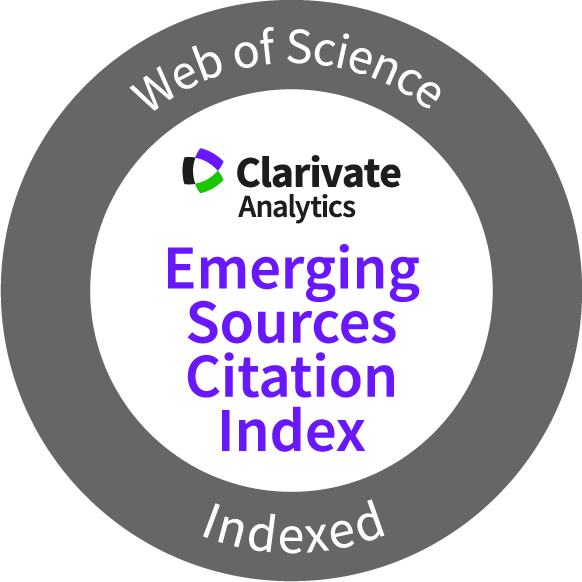The Investigation of Bio-Preservative Properties in Plukenetia volubilis L. (Sacha Inchi) Seeds Protein Extract For Food Spoilage Prevention
Keywords:
Antioxidant, antimicrobial activity, bio-preservative, food spoilage, protease inhibitoryAbstract
The importance of food quality and safety has long been recognized by the food industry to cater to food spoilage. Food spoilage is caused by the loss of food quality from its original organoleptic qualities due to chemical and biological spoilage processes that may impact customer acceptance. This research aimed to evaluate the potential of Sacha inchi seeds protein as a multifunctional food preservative in controlling chemical (oxidation) and biological (microbial and protease activity) food spoilage. The antioxidant capacity revealed that the Sacha inchi seed protein has 73.72 ± 0.70% inhibition towards oxidation with the total phenolic content detected at the concentration of 463.13 ± 0.51 μg/mL in the protein extract. The tested food spoilage bacteria (Escherichia coli and Micrococcus luteus) and fungus (Colletotrichum gloeosporioides) were susceptible to Sacha inchi seed protein showing its potential antimicrobial properties. The Sacha inchi protein extract (46.65 μg/mL & 23.28 μg/mL) shows a significant inhibition for E. coli (30.5 mm) and M. luteus (33 mm), respectively, which indicated its effectiveness. Sacha inchi seed protein also displayed potential antifungal activities by suppressing the growth of C. gloeosporioides at inhibitory concentration percentages (IC%) of 1.5±0.12%, 5.85±3.89% and 5.90±1.98% after 2, 3 and 4-days of incubation, respectively. The caseinolytic plate assay revealed that Sacha inchi seed protein showed inhibition of trypsin digestion on casein with reduced inhibition diameter from 1.9±0.00 cm (negative control) to 1.05±0.00 cm. Following the effective protein separation by SDS-PAGE, zymography analysis revealed that a prominent protein band at 25 kDa showed protease inhibitory activity. This research contributes insights into the potential application of Sacha inchi seed extract as a bio-preservative in the food industry to combat food spoilage and it is aligned with SDG 2 for zero hunger.
Downloads
Metrics
References
Abbas, K.A., Saleh, A.M., Mohamed, A. & Lasekan, O. 2009. The relationship between water activity and fish spoilage during cold storage: A review. Journal of Food, Agriculture and Environment, 7(3/4): 86-90.
Bacha, A.B., Jemel, I., Moubayed, N.M.S. & Abdelmalek, I.B. 2017. Purification and characterization of a newly serine protease inhibitor from Rhamnus frangula with potential for use as therapeutic drug. 3 Biotech, 7(2):148. DOI: https://doi.org/10.1007/s13205-017-0764-z
Bijina, S.C., Basheer, S.M., Elyas, K.K., Bahkali, A.H. & Chandrasekaran, M. 2011. Protease inhibitor from Moringa oleifera leaves: Isolation, purification, and characterization. Process Biochemistry, 46(12): 2291- 2300. DOI: https://doi.org/10.1016/j.procbio.2011.09.008
Chakchouk-Mtibaa, A., Smaoui, S., Ktari, N., Sellem, I., Najah, S., Karray-Rebai, I. & Mellouli, L. 2017. Biopreservative efficacy of bacteriocin BacFL31 in raw ground Turkey meat in terms of microbiological, physicochemical, and sensory qualities. Biocontrol Science, 22(2): 67-77. DOI: https://doi.org/10.4265/bio.22.67
Chan, S.S., Roth, B., Jessen, F., Jakobsen, A.N. & Lerfall, J. 2022. Water holding properties of Atlantic salmon. Comprehensive Reviews in Food Science and Food Safety, 21(1): 477-498. DOI: https://doi.org/10.1111/1541-4337.12871
Chen, Z., Wang, J., Liu, W. & Chen, H. 2017. Physicochemical characterization, antioxidant and anticancer activities of proteins from four legume species. Journal of Food Science and Technology, 54(4): 964-972. DOI: https://doi.org/10.1007/s13197-016-2390-x
Ghaly, A.E., Dave, D., Budge, S. & Brooks, M.S. 2010. Fish spoilage mechanisms and preservation techniques. American Journal of Applied Sciences, 7(7): 859-877. DOI: https://doi.org/10.3844/ajassp.2010.859.877
Jaafar, N.F., Ramli, M.E. & Mohd Salleh, R. 2020. Optimum extraction condition of Clitorea ternatea flower on antioxidant activities, total phenolic, total flavonoid and total anthocyanin contents. Tropical Life Sciences Research, 31(2): 1-17. DOI: https://doi.org/10.21315/tlsr2020.31.2.1
Jang, M., You, S. & Kim, G-H. 2020. Evaluation of antibacterial and antioxidant activities of Sacha inchi (Plukenetia volubilis L.) leaf from Myanmar. Korean Journal of Food Preservation, 27: 781-790. DOI: https://doi.org/10.11002/kjfp.2020.27.6.781
José, D.L.S., Ma., G.J., Rafael, S. & Joel, E.L. 2009. Root extracts from Mexican avocado (Persea americana var. drymifolia) inhibit the mycelial growth of the oomycete Phytophthora cinnamomi. European Journal of Plant Pathology, 124: 595-601. DOI: https://doi.org/10.1007/s10658-009-9446-y
Karanth, S., Feng, S., Patra, D. & Pradhan A.K. Linking microbial contamination to food spoilage and food waste: the role of smart packaging, spoilage risk assessments, and date labeling. Frontiers in Microbiology, 14: 1198124. DOI: https://doi.org/10.3389/fmicb.2023.1198124
Kraft, A. A. 1992. Psychotropic Bacteria in Foods: Disease and Spoilage. CRC Press, Boca Raton, Florida. 288 pp. DOI: https://doi.org/10.1201/9781466593503
Lemus-Conejo, Ana, Alvaro Villanueva-Lazo, Maria E. Martin, Francisco Millan, and Maria C. Millan-Linares. 2024. Sacha inchi (Plukenetia volubilis L.) protein hydrolysate as a new ingredient of functional foods. Foods,13: 2045. DOI: https://doi.org/10.3390/foods13132045
Manandhar, S., Luitel, S. & Dahal, R.K 2019. In vitro antimicrobial activity of some medicinal plants against human pathogenic bacteria. Journal of Tropical Medicine. DOI: https://doi.org/10.1155/2019/1895340
Mohan, M., Kozhithodi, S., Nayarisseri, A. & Elyas, K.K. 2018. Screening, purification and characterization of protease inhibitor from Capsicum frutescens. Bioinformation,14(6): 285-293. DOI: https://doi.org/10.6026/97320630014285
Odeyemi, O. A., Alegbeleye, O. O., Strateva, M. & Stratev, D. 2020. Understanding spoilage microbial community and spoilage mechanisms in foods of animal origin. Comprehensive Reviews in Food Science and Food Safety, 19(2): 311- 331. DOI: https://doi.org/10.1111/1541-4337.12526
Onyeaka, H., & Nwabor, O. 2022. Food Spoilage - an overview. In: Food Preservation and Safety of Natural Products. H.N. Onyeaka and O.F. Nwabor (Eds.). Academic Press, United Kingdom. 272 pp. DOI: https://doi.org/10.1016/B978-0-323-85700-0.00005-8
Patricia A.M.S.B. & Johannes W.V.H. 2005. Zymographic techniques for the analysis of matrix metalloproteinases and their inhibitors. BioTechniques, 38:73-83. DOI: https://doi.org/10.2144/05381RV01
Pellissery, A. J., Vinayamohan, P. G., Amalaradjou, M. A. R. & Venkitanarayanan, K. 2020. Spoilage bacteria and meat quality. In: Meat Quality Analysis. A.K. Biswas and P.K. Mandal (Eds.). Academic Press. pp. 307-334. DOI: https://doi.org/10.1016/B978-0-12-819233-7.00017-3
Quinteros, M., Vilcacundo, R., Carpio, C. & Carrillo, W. 2016. Digestibility and anti-inflammatory activity in vitro of sacha inchi (Plukenetia volubilis L.) proteins. Asian Journal of Pharmaceutical and Clinical Research, 9(3): 303-306.
Rawdkuen, S., D'Amico, S. & Schoenlechner, R. 2022. Physicochemical, functional, and in vitro digestibility of protein isolates from Thai and Peru sacha inchi (Plukenetia volubilis L.) oil press-cakes. Foods , 11:1869. DOI: https://doi.org/10.3390/foods11131869
Rawdkuen, S., Murdayanti, D., Ketnawa, S. & Phongthai, S. 2016. Chemical properties and nutritional factors of pressed-cake from tea and sacha inchi seeds. Food Bioscience15: 64-71. DOI: https://doi.org/10.1016/j.fbio.2016.05.004
Rawdkuen, S., Nurdalila, R. & Suttiporn P.S. 2018. Characterization of sacha inchi protein hydrolysates produced by crude papain and calotropis proteases. LWT (Food Science and Technology), 96: 18-24. DOI: https://doi.org/10.1016/j.lwt.2018.08.008
Sarika, A.R., Lipton, A.P. & Aishwarya, M.S. 2019. Biopreservative efficacy of bacteriocin GP1 of Lactobacillus rhamnosus GP1 on stored fish filets. Frontiers in Nutrition. 6: 29. DOI: https://doi.org/10.3389/fnut.2019.00029
Shirazi, O.U., Khattak, M.M.A.K., Shukri, N.A. M. & Nasyriq, M.N. 2014. Determination of total phenolic, flavonoid content and free radical scavenging activities of common herbs and spices. Journal of Pharmacognosy and Phytochemistry, 3(3): 104-108.
Siaw, F. 2022. Sacha inchi, a superfood that could help Malaysia's economy [WWW Document] Rise Malaysia.com. URL https://risemalaysia.com.my/sacha-inchi-nutribah/8964/ (accessed 9.6.23).
Singh, J., Singh, B. (2020) Inhibition of post-mortem fish muscle softening and degradation using legume seed proteinase inhibitors. Journal of Food Science and Technology, 57: 1-11. DOI: https://doi.org/10.1007/s13197-019-04044-6
Singh, V. P. 2018. Recent approaches in food bio-preservation-a review. Open Veterinary Journal, 8(1): 104-111. DOI: https://doi.org/10.4314/ovj.v8i1.16
Sitohy, M. & Osman, A. 2010. Antimicrobial activity of native and esterified legume proteins against Gram-negative and Gram-positive bacteria. Food Chemistry, 120(1): 66-73. DOI: https://doi.org/10.1016/j.foodchem.2009.09.071
Tahiluddin, A., Marıbao, I., Amlani, M. & Sarri, J. 2022. A review on spoilage microorganisms in fresh and processed aquatic food products. Food Bulletin. 1: 21-36. DOI: https://doi.org/10.29329/foodb.2022.495.05
Tehrani, M.H.H., Fakhrehoseini, E., Nejad, M.K., Mehregan, H. & Mojdeh, H-V. 2012. Search for proteins in the liquid extract of edible mushroom, Agaricusbisporus, and studying their antibacterial effects. Iranian Journal of Pharmaceutical Research,11: 145-50.
Wang, S., Fang, Y. & Kakuda, Y. 2018. Sacha inchi (Plukenetia volubilis L.): Nutritional composition, biological activity, and uses. Food Chemistry, 265: 316- 328. DOI: https://doi.org/10.1016/j.foodchem.2018.05.055
Zhang, X., Yao Shuai, Han, T., Li, C., & He, L. 2021. Novel method for the quantitative analysis of protease activity: the casein plate method and its applications. ACS Omega, 6(5): 3675-3680. DOI: https://doi.org/10.1021/acsomega.0c05192
Zhuang, S., Hong, H., Zhang, L. & Luo, Y. 2020. Spoilage-related microbiota in fish and crustaceans during storage: Research progress and future trends. Comprehensive Reviews in Food Science and Food Safety, 20(1): 252- 288. DOI: https://doi.org/10.1111/1541-4337.12659
Published
How to Cite
Issue
Section
Any reproduction of figures, tables and illustrations must obtain written permission from the Chief Editor (wicki@ukm.edu.my). No part of the journal may be reproduced without the editor’s permission




















